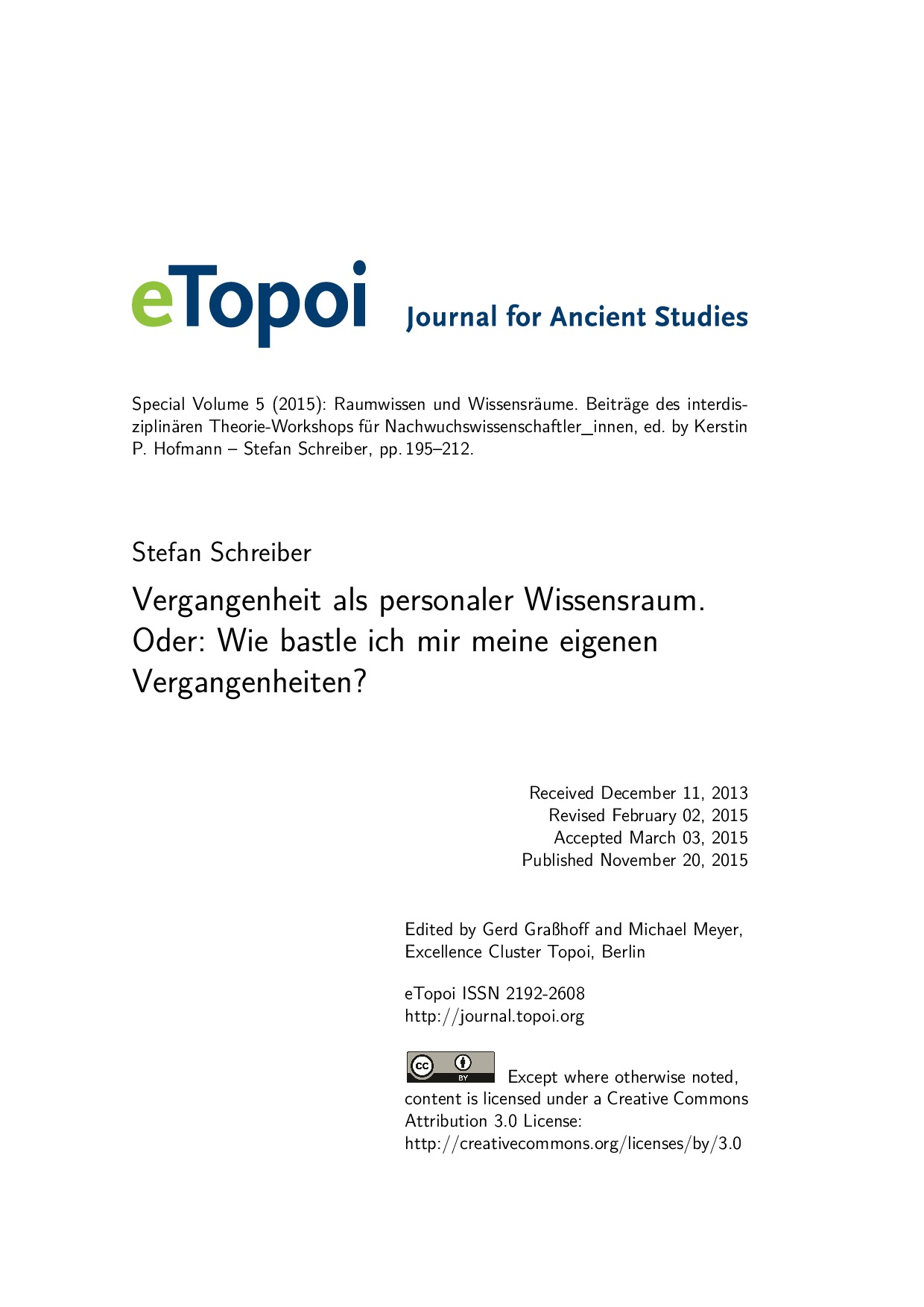Vergangenheit als personaler Wissensraum. Oder: Wie bastle ich mir meine eigenen Vergangenheiten?
In the field of archaeology, knowledge about the past is in many cases produced in a content, formal and methodologically coherent way. At the same time, this knowledge is trimmed into a respectively existing personal knowledge of the “general public”. From an archaeological point of view each shift of that knowledge is a result of misunderstandings or exploitation. Hence, this paper focuses on the question of how different conceptions of the past can compete on a personal level, without either contradicting and annul itself constantly in contrast to how they can assemble a coherent meaning of the past. Therefore, past is understood as a knowledge space, which can be viewed and analyzed using the concepts of space by Henri Lefebvre and David Harvey. In a last step an attempt is made to approach the complex process of constructing the past with the concept of bricolage, by Claude Lévi-Strauss.
Die Archäologie produziert möglichst inhaltlich, formal und methodologisch kohärentes Wissen über die Vergangenheit. Zugleich wird dies aber in jeweils bestehende personale Wissensbestände der ‚interessierten Öffentlichkeit‘ eingepasst und von archäologischer Seite jegliche auftretenden Sinnveränderungen als Missverständnisse oder Instrumentalisierung verstanden. Der Artikel fokussiert auf die Frage, warum auf personaler Ebene verschiedene Vergangenheitsvorstellungen konkurrieren können, ohne sich entweder beständig zu widersprechen und aufzuheben oder zu einem kohärenten Vergangenheitsbild zusammengefügt zu werden. Dazu wird Vergangenheit als Wissensraum verstanden, der sich mit den Raumvorstellungen von Henri Lefebvre und David Harvey analysieren lässt. Abschließend wird versucht, sich dem vielschichtigen Konstruktionsprozess des Wissensraumes Vergangenheit durch das Konzept der Bastelei/Bricolage nach Claude Lévi-Strauss zu nähern.

